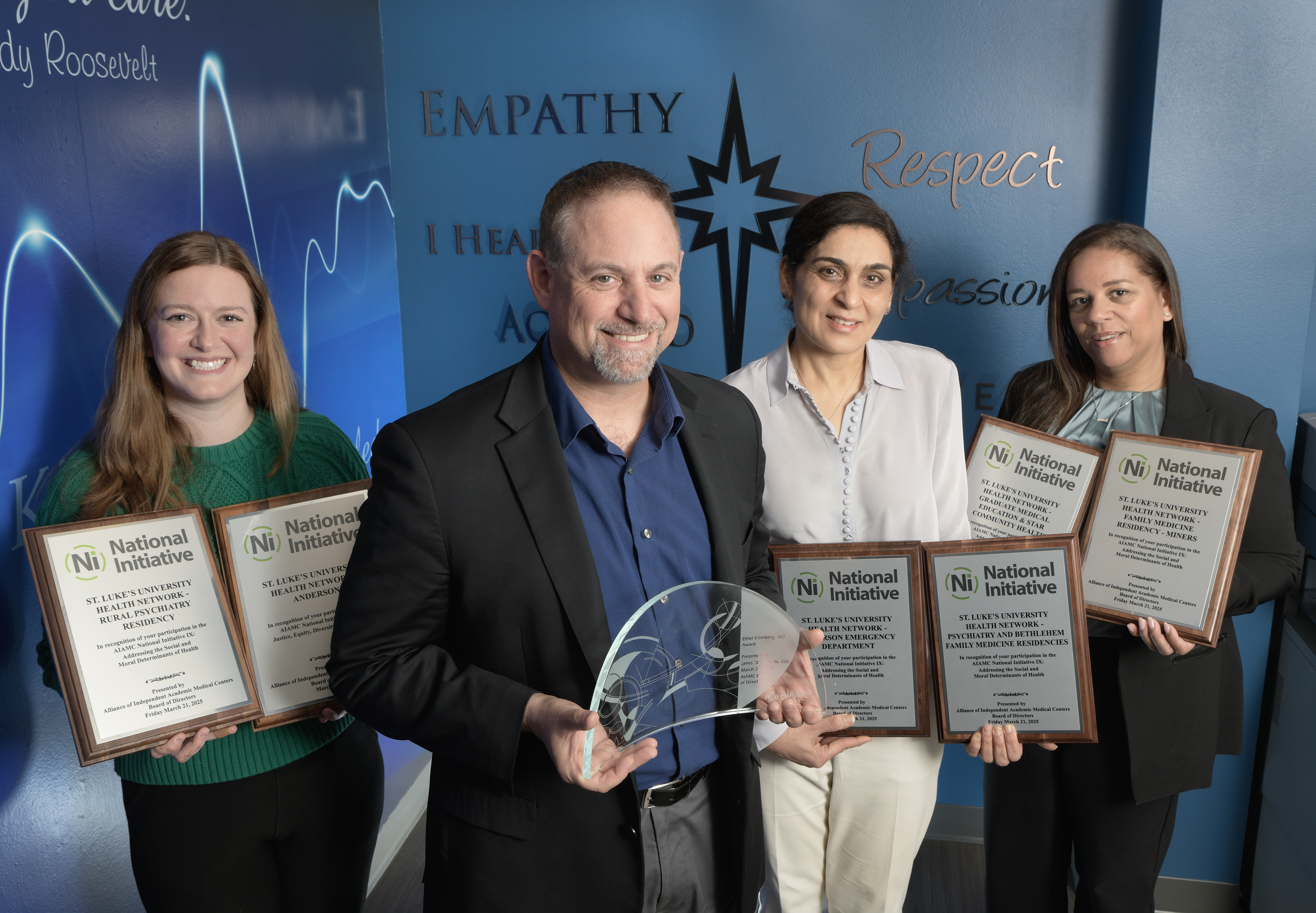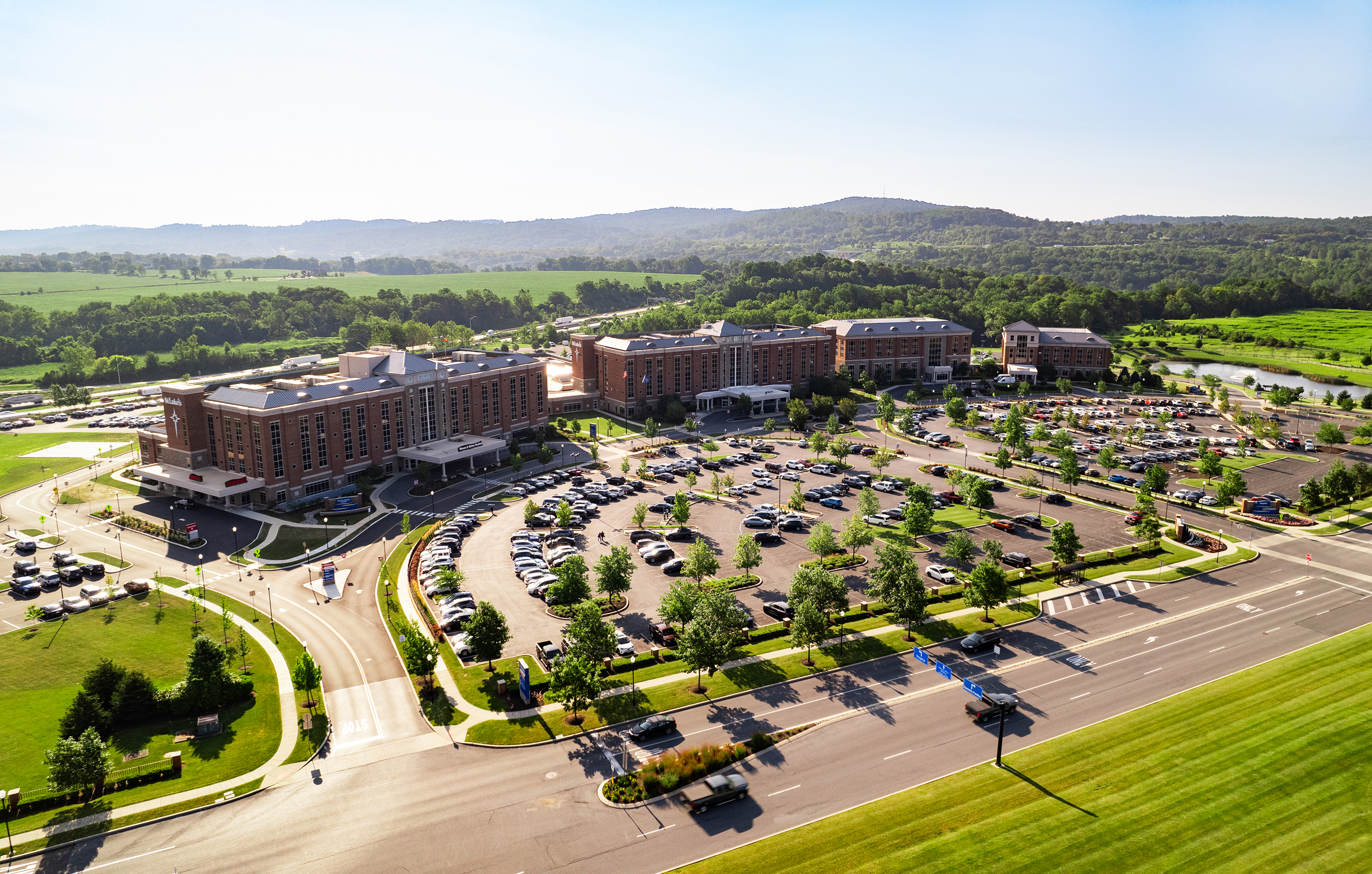Adoptee Seeks Reassurance Through DNA Answers Study
October 30, 2024

Melissa Shafer
Melissa Shafer was nervous as she went on the DNA Answers website to gain some insight into her long-sought genetic medical history from the new St. Luke’s Community Health research program.
The 43-year-old Assistant Vice President of Government Relations and Community Affairs at St. Luke’s was adopted during her first year of life, and she was excited to realize that by participating in the DNA Answers study, she would be receiving medically relevant genetic information that would not only better inform her but could also impact her two children.
“I’ve often asked myself, ‘What am I passing on to my kids?’” said the Upper Saucon Township resident.
See video: https://vimeo.com/1006343980?share=copy.
Being adopted presented challenges to knowing her family medical history. And to further complicate things, Shafer’s biological mother, too, was adopted. This made Shafer’s medical detective work much more challenging.
The DNA Answers is a no-cost community health research program, that St. Luke’s is offering with their population genomics partner, Helix. The organizations launched the DNA Answers research study as part of an ongoing commitment to the Lehigh Valley to offer the latest medical technologies that support a “precision medicine” approach in healthcare.
“We have arrived at a historic turning point in the history of medicine – the ability to use information stored in patients’ DNA to improve the accuracy of certain treatments for the individual patient,” reports Aldo Carmona, MD, St. Luke’s Senior Vice President of Clinical Integration.
Born in Florida, Shafer was adopted as a baby by a Montgomery County, Pennsylvania, couple. Shafer’s biological mother was born in Newfoundland, Canada, where she too was adopted as a baby, by a US military family stationed there at the time.
As an adult after she started her own family, Shafer felt a growing urgency to know more about her own medical background. “I’d been active on Ancestry.com, which helped me learn about my heritage but not my medical genetics, especially on the paternal side of my biological family,” she said.
During a trip in 2023 to St. John’s, Newfoundland, Canada, Shafer was able to meet her great-uncle, the last living sibling of her biological grandmother. This allowed her some further insight, as he relayed that her grandmother’s medical history included heart disease. Additionally, Schafer knew that her biological mother had died after a long battle with bladder cancer.
Then in January 2024, St. Luke’s launched its community health research program, DNA Answers, which involves ‘medical grade’ analysis of participants’ DNA through Helix’s Whole Exome(+) Sequencing (WES), technology designed specifically for healthcare purposes. Shafer acted quickly and enrolled in the study and following a simple blood draw at a St. Luke’s laboratory, she waited for the results with a mix of excitement, curiosity and anxiety. Among her concerns, Shafer stated, “I wanted to rule out if I was a carrier of the BRCA gene, which would put me at a high risk for cancer.”
Christopher N. Chapman, MD, principal investigator for DNA Answers explained, “Our study initially aims to enroll 100,000 participants over four years. Participating individuals, like Ms. Shafer, are provided genetic screening at no cost, informing them of important health information about inherited risks for serious conditions, such as a certain type of cardiovascular disease and certain types of cancer. This knowledge allows the participant to make proactive decisions in conjunction with their healthcare provider to potentially delay, reduce, or even prevent these conditions from occurring later in life.”
Additionally, for research participants who have provided their informed consent, Helix will apply its end-to-end genomics platform and unique Sequence Once, Query Often™ model, which allows future clinical genomic tests to be run with a provider’s order and patient consent without the need to collect an additional sample. This could help participants’ providers tailor care options and prescribe medications even more accurately and effectively – hence the term “precision medicine.”
Thankfully, as Shafer’s testing results returned, she breathed a sigh of relief as, “Everything came back negative” meaning that the screening did not identify any genetic variants currently known to be associated with an increased risk for the conditions covered by DNA Answers.
“This was good news!” she said. “If not for DNA Answers, I wouldn’t have learned this critical medical information. It was quick, easy and free-of-charge, and my family and I are grateful for it.”
To learn more about St. Luke’s community research study, DNA Answers, visit www.DNAanswers.org.
Read More NewsLatest News


April 10, 2025
National Recognition for SLUHN Graduate Medical Education

April 09, 2025
In Safe Hands Award

April 08, 2025